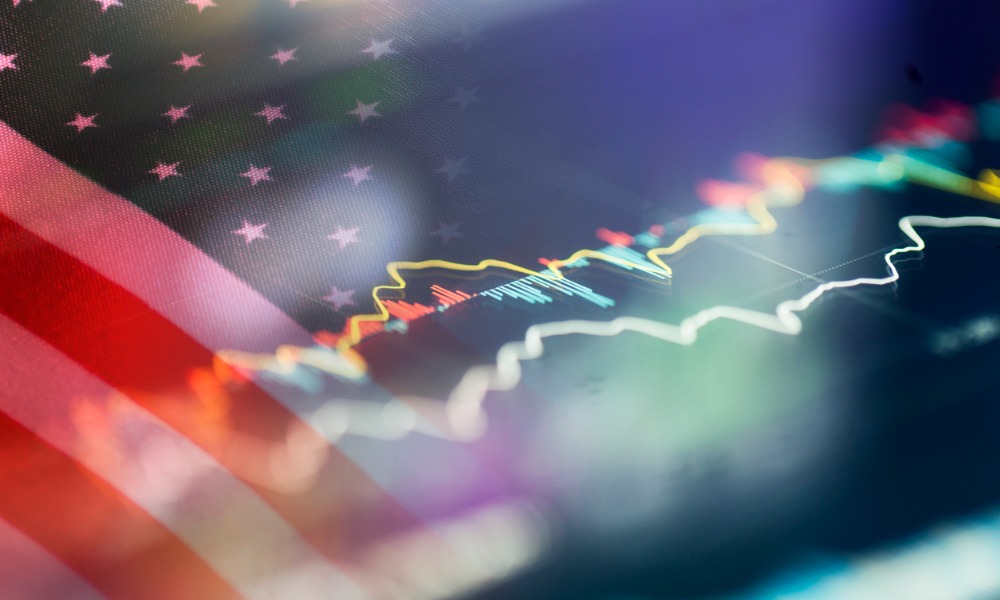

The further into 2024 we’ve come, the more bullish investors have become and economists and consumers alike have felt like the worst of multi-year challenges are behind us.
But despite the resilience of the US economy, which was hotly tipped to enter recession as recently as the new year started, there are headwinds that could mean that the near-term positive environment turns sour by the end of the decade.
That’s the warning from Los Angeles based independent economic research firm Beacon Economics which says that a crisis is brewing.
The firm says that the huge Federal deficit and overvalued asset markets are driving excessively hot consumer spending. That might be good for the current growth of the US economy but is setting up problems later on.
First, the good news. The outlook calls for the US economy to experience a steady pace of GDP growth in 2024, probably in the 2% to 2.5%. Inflation is heading towards the Fed’s target and there remains optimism that interest rates will be cut at least once this year. And there’s the strong performance of the US equity markets.
But that is now. And the report raises concerns that several factors cannot last indefinitely:
"These issues began long before the pandemic struck, but actions by the Fed in response to the crisis have made the nation's long-run economic situation significantly worse," said the outlook’s author, Christopher Thornberg, founding partner of Beacon Economics. "Their decision to firehose an extreme amount of new money into the economy expanded U.S. money supply by 40% in an 18 month period – show me a nation that wouldn't see a surge in spending and prices after such an aggressive increase."
Like the plot of every Hollywood disaster movie, Thornberg is sounding the alarm on what could be ahead, but the challenge is to get others to listen.
"There is no version of the future in which these trends are sustainable," he said. "In any smaller economy the warning signs would already be flashing red to global asset markets, but the United States is too big and relatively safe for the danger to be acknowledged… yet."

Plus, a $400 million Commonwealth team departs to launch an independent family-run RIA in the East Bay area.

The collaboration will focus initially on strategies within collective investment trusts in DC plans, with plans to expand to other retirement-focused private investment solutions.

“I respectfully request that all recruiters for other BDs discontinue their efforts to contact me," writes Thomas Bartholomew.

Wealth tech veteran Aaron Klein speaks out against the "misery" of client meetings, why advisors' communication skills don't always help, and AI's potential to make bad meetings "100 times better."

The proposed $120 million settlement would close the book on a legal challenge alleging the Wall Street banks failed to disclose crucial conflicts of interest to investors.
Orion's Tom Wilson on delivering coordinated, high-touch service in a world where returns alone no longer set you apart.
Barely a decade old, registered index-linked annuities have quickly surged in popularity, thanks to their unique blend of protection and growth potential—an appealing option for investors looking to chart a steadier course through today's choppy market waters, says Myles Lambert, Brighthouse Financial.
